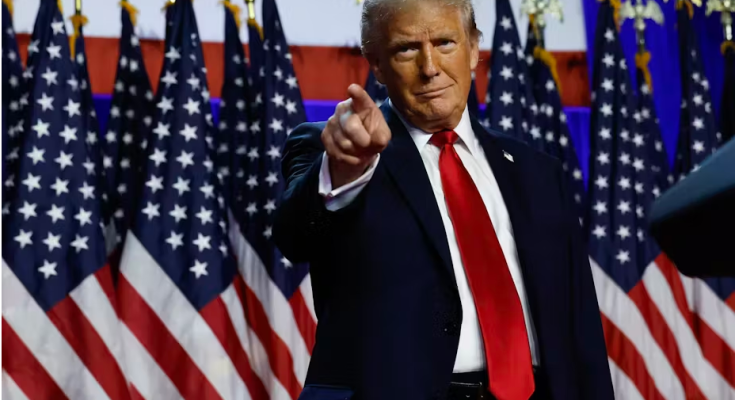Donald Trump’s Speech About African Leaders
During his time as President of the United States (2017–2021), Donald Trump made several statements regarding Africa and its leaders. His comments were often controversial, drawing criticism both internationally and within the U.S. While Trump did not give a major dedicated speech about African leaders, he did address them in various meetings, speeches, and offhand remarks. Some of these statements were diplomatic, while others sparked outrage and accusations of insensitivity toward the African continent.
Trump’s Remarks at the 2017 UN Luncheon with African Leaders
One of the few times Trump directly addressed African leaders in an official setting was during a working lunch at the United Nations General Assembly in September 2017. At this event, he hosted leaders from several African nations, including Nigeria, Ghana, South Africa, Ivory Coast, and Uganda.
In his speech, Trump acknowledged Africa’s economic potential and praised African leaders for their efforts in business and entrepreneurship. He stated:
“Africa has tremendous business potential. I have so many friends going to your countries, trying to get rich. I congratulate you. They’re spending a lot of money. But it does. It has tremendous business potential.”
While Trump’s comment about business potential was generally well-received, his wording about his “friends trying to get rich” drew criticism. Many viewed it as an outdated, exploitative perspective that reinforced stereotypes about Africa being a place for foreigners to extract wealth rather than an independent economic powerhouse.
Trump also made a diplomatic blunder when he mentioned a non-existent African country. He referred to “Nambia” while attempting to discuss Namibia, leading to ridicule on social media and among political commentators.
The “Shithole Countries” Controversy
One of the most infamous instances where Trump referred to African nations was during a closed-door meeting in January 2018. While discussing immigration policy with lawmakers, Trump reportedly referred to some African countries, as well as Haiti and El Salvador, as “shithole countries.” This comment was widely condemned as racist and disrespectful to the people of these nations.
Although Trump denied using the exact phrase, multiple sources confirmed the report. African leaders and diplomats strongly criticized the remark, with the African Union demanding an apology. Some African leaders, such as Botswana’s government, formally protested, calling Trump’s words “irresponsible, reprehensible, and racist.”
Trump’s Policies Toward African Leaders and Nations
While his rhetoric about Africa was often controversial, Trump’s administration had mixed engagement with African leaders. Unlike his predecessors, Barack Obama and George W. Bush, Trump did not prioritize U.S.-Africa relations.
However, his administration did engage with African leaders in specific ways:
- Security Cooperation: Trump maintained strong military ties with African nations, continuing counterterrorism efforts in countries like Somalia and Niger.
- Economic Policies: The Trump administration introduced the “Prosper Africa” initiative, aimed at increasing trade between the U.S. and Africa.
- Diplomatic Relations: Trump hosted a few African leaders at the White House, including President Muhammadu Buhari of Nigeria in 2018.
Despite these efforts, many African leaders felt that Trump largely ignored the continent compared to previous U.S. presidents. His administration also imposed travel bans on several African countries, which further strained relations.
Conclusion
Donald Trump’s comments about African leaders and nations were a mix of praise, diplomatic missteps, and outright controversy. While he occasionally acknowledged Africa’s potential, his administration was often criticized for neglecting strong diplomatic ties with the continent. His remarks—especially the “shithole countries” comment—damaged relationships with many African nations and reinforced perceptions that he viewed the continent with little regard.
Would you like any refinements or additions to this?




